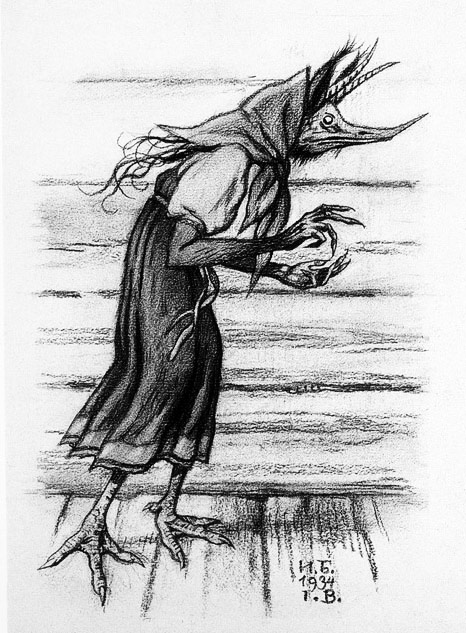Lyadov, Kikimora
In last week’s post on Glazunov, we briefly mentioned Anatoly Lyadov [Liadov] (1855-1914) as another member of the Belyayev circle. Lyadov also studied composition with Rimsky-Korsakov, but he was expelled from the conservatory for failure to attend class. He was later readmitted and went on to teach music theory there.
“Indolence” and “procrastination” show up several times in the Grove’s entry describing Lyadov. In fact, Lyadov had been tapped originally by Diaghilev to compose the ballet score for The Firebird. When he failed to complete the project, it was handed to the young unknown composer Igor Stravinsky.
Lyadov had a particular interest in counterpoint. He and Rimsky-Korsakov spent the summer of 1878 writing a fugue every day on the same subject. (That doesn’t sound very indolent!) He also collected Russian folk songs and used folk tales as the basis for some of his works.

In Slavic folklore, Kikimora is a female household spirit associated with domestic tasks. She is the guardian of chickens and is depicted with chicken characteristics. Kikimora can be either bad or good, depending on the homeowner.
Lyadov wrote that Kikimora
grows up with a magician in the mountains. From dawn to sunset the magician’s cat regales Kikimora with fantastic tales of ancient times and faraway places, as Kikimora rocks in a cradle made of crystal. It takes her seven years to reach maturity, by which time her head is no larger than a thimble and her body no wider than a strand of straw. Kikimora spins flax from dusk and to dawn, with evil intentions for the world.
Written in 1910, Kikimora is a short tone poem that Lyadov subtitled “fantastic scherzo.” He was drawn to short forms and wrote two other poems on folk themes, Baba-Yaga and The Enchanted Lake.



